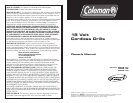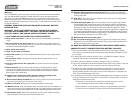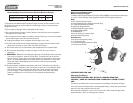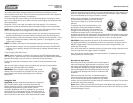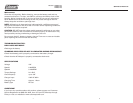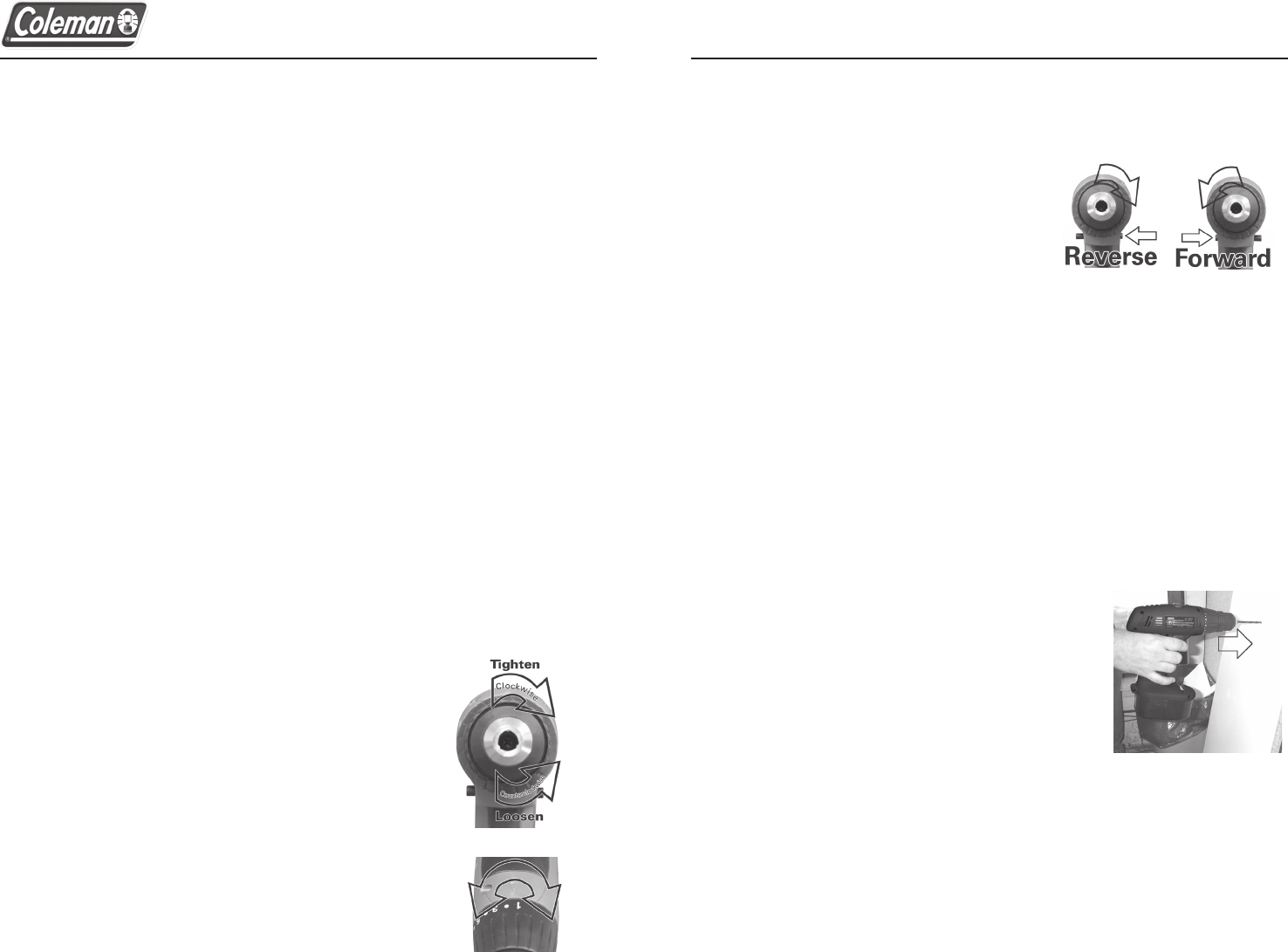
Models: PMD8137
PMD8142
PMD8143
Owner’s Manual
The battery should be recharged when the drill does not operate up to its
normal performance level. Do not continue to operate the drill in this depleted
capacity. Recharge the battery immediately.
To increase the life of your battery, do not leave the battery charging for more
than 1 hour. While this is not a safety concern, overcharging may reduce the life
of the battery(ies).
Overtime, if drill is not used, the battery will lose capacity. For maximum
performance recharge the battery after prolonged storage or non-use periods.
NOTE: Before inserting or removing the battery from the charging base, always
ensure that the base is not plugged into a 120V power source.
1. To begin charging, remove the battery pack from the tool by pressing on the
battery release buttons on either side of the battery pack and pulling down.
2. Plug the battery pack into the battery charger making sure the positive (+) and
negative (-) poles of the battery match the positive (+) and negative (-) poles
of the battery charger.
NOTE: The battery will only fit into the battery charger and the tool one way.
3. Plug the battery charger into any standard 120 Volt wall outlet. The RED LED
indicator on the battery charger will illuminate to indicate that the battery is
charging.
4. Full charging will take 1 hour.
NOTE: While the battery is placed in the charger, the RED LED indicator light
will remain on. After one hour and a complete charge, the GREEN LED indicator
light will illuminate to let you know it is now safe to use the battery.
If charging more than one battery, wait at least 15 minutes between each
charge.
Use only the battery charger that is supplied with this tool. Using another
charger may cause damage to the battery.
WARNING: Never charge a battery pack again imme-
diately after it has been fully charged. This can give rise
to the battery pack being overcharged and a reduced
battery life.
Using The Drill
CAUTION: Always make sure that the tool is switched
OFF and the battery pack is removed from the drill
before changing any bits. Loosen the keyless chuck by
holding the ring and turning the sleeve counter
clockwise. Select the drill bit or screwdriver you want to
use and place it in the keyless chuck. Twist the sleeve of
the keyless chuck clockwise to tighten it, making sure the
drill bit remains in the center of the keyless chuck’s teeth.
Twist the 24 setting torque control ring to the desired setting. Lower settings are
better for light work such as driving screws into soft materials. Higher settings
are recommended for drilling into harder surfaces.
When properly adjusted, the clutch will slip at
its present torque setting to prevent driving
the screw too deep or to prevent damage to
the tool.
To operate the drill in forward setting, sim-
ply keep the Forward/Lock/Reverse switch
flat against the side of the drill as shown. To
change to reverse setting, move the Forward/
Lock/Reverse switch until it is flat against the
opposite side of the drill. Keeping the Forward/Lock/Reverse switch in the center
position locks the drill and prevents unintentional use. It is recommended that
the Drill is in the locked position when it is not in use or is being stored.
CAUTION: Always check the direction of the rotation before using the drill.
The speed of the drill is increased by the amount of pressure you place on the
ON/OFF trigger switch. The less pressure you put on the trigger switch, the
slower the drill will go.
Your drill comes with an automatic braking function that quickly stops the chuck
from turning when the trigger switch is released.
Your drill has two speed ranges; low speed (position 1) (0-400 rpm) and high
speed (position 2 ) (0-1100 rpm).
Screwdriver Operation
Place the point of the screwdriver bit into the head of
the screw and apply slight pressure to the tool. Press
the trigger switch slightly and then gradually increase
the drill speed. Release the trigger switch as soon as
the clutch engages. Note: Starting the drill at too high
of a speed can damage the drill bit or reduce the life
of the bit.
Make sure that the driver bit is inserted straight in
the screw head or the screw may become damaged
or will not be inserted properly. When driving wood
screws, pre-drill pilot holes into the surface to make driving easier. This will also
prevent the wood from splitting.
Note: When drilling, the drill bit can become stuck. When this happens a very
high torque will be produced. Always take care to hold the drill firmly to prevent
possible damage or injury.
5 6



